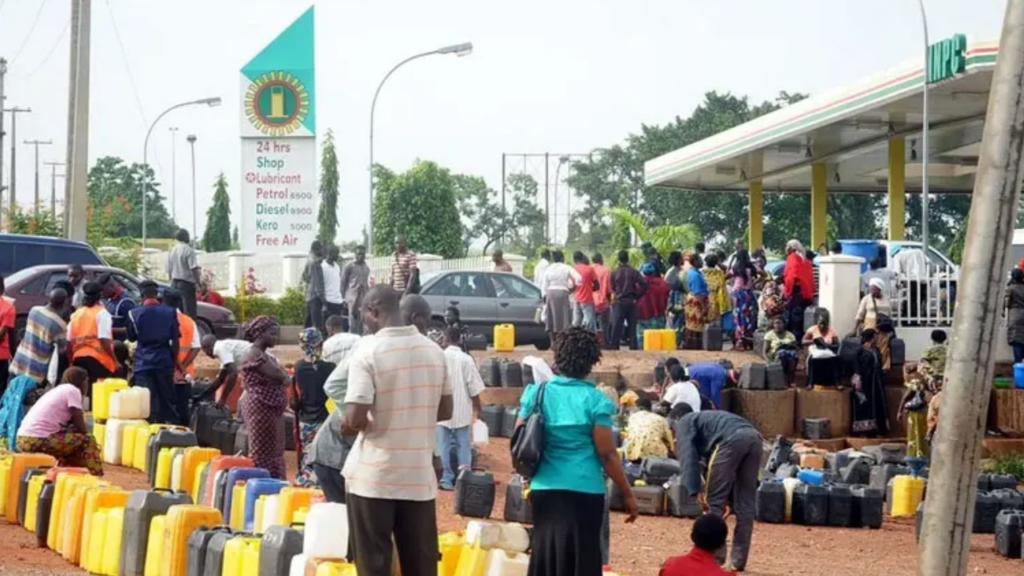Solid Minerals
Coal Prices likely to Run Out of Steam
NEW YORK – Thermal-coal prices may be running out of steam as Asian power producers wind down purchases after a period of prewinter stockpiling and an underlying supply glut reasserts itself.
Prices of the power-generation fuel have rallied to multimonth highs in China and Australia, two countries that dominate coal supply-demand fundamentals, mirroring moves seen with iron ore.
China’s continued economic strength has underpinned Australian coal, whose price has climbed to its highest level in more than five months. Chinese coal has also been on streak, rising for nine successive weeks and gaining 15% since early October.
 China’s economic growth rate of 7.8% in the July-September quarter may slow due to tightening credit, with some economists tipping it to move toward 7% in 2014, damping industry demand for electricity and the coal used to make it.Prices at Newcastle port on Australia’s east coast, the world’s largest coal export facility, have stabilized after rising to their highest level since June. At US$83.40 a metric ton now, the Newcastle spot price is up 6% since mid-October and 10% since an August nadir, but still less than half of levels reached in 2008. The Bohai Rim index, which measures domestic thermal-coal prices in China, was at 608 yuan ($100.14) on Dec. 10 compared with 530 yuan two months ago but still down from 638 yuan a year ago.
China’s economic growth rate of 7.8% in the July-September quarter may slow due to tightening credit, with some economists tipping it to move toward 7% in 2014, damping industry demand for electricity and the coal used to make it.Prices at Newcastle port on Australia’s east coast, the world’s largest coal export facility, have stabilized after rising to their highest level since June. At US$83.40 a metric ton now, the Newcastle spot price is up 6% since mid-October and 10% since an August nadir, but still less than half of levels reached in 2008. The Bohai Rim index, which measures domestic thermal-coal prices in China, was at 608 yuan ($100.14) on Dec. 10 compared with 530 yuan two months ago but still down from 638 yuan a year ago.
For now, China’s power stations are still humming, producing 439 billion kilowatt-hours of electricity in November, up from around 430 billion KWh in October and in September, the China statistics bureau said Tuesday.
Maintenance work on a railway linking mining areas in China’s north to a major port at Qinhuangdao added to the recent jump in prices as it coincided with power plants stocking up on the fuel, Barclays analyst Ephrem Ravi said.Meanwhile, Chinese buyers have been taking advantage of relatively lower prices available from big suppliers in Australia and Indonesia compared with Chinese coal from Inner Mongolia or Shanxi province, said Ralph Leszczynski, head of research at Banchero Costa Group, a shipping services firm based in Italy. Chinese thermal-coal demand rose 8% in the first 10 months of the year, he says.
Imports of the fuel rose 15% from January through November while domestic output eased 0.3%, data from China Customs and the China Coal Transport and Distribution Association respectively show.
Many see prices softening ahead.
“We expect prices to peak at 610-620 yuan a ton at most and to fall when we enter January,” said Jin Tao, a Shanghai-based analyst at Guotai Junan Securities.
Rising supplies—with record exports expected out of Indonesia, Australia, and South Africa this year—and moderating demand growth in countries including China and India will cap prices, said RBC Capital Markets analyst Chris Drew, who forecasts an average price of $83 a ton in 2014, down from $85 in 2013. Commonwealth Bank of Australia is predicting $88 a ton for next year.
China’s coal output is likely to reach 3.70 billion tons this year, up from 3.66 billion tons last year, according to the China National Coal Association, although plans to rely more on higher-quality coal as part of pollution-control efforts could lead to more imports of that type of the fuel from Australia, thus supporting prices.
The gains are a boon for exporters in Australia, where mining is costly and many operations have been running at a loss over the past year. The coal industry’s recent woes have their roots in its earlier success when prices were high and companies rushed to invest billions of dollars in new production and to lock in space at ports.
That new supply is what has been weighing heavily on the market as coal miners elsewhere are vying for Asian customers as they seek to find an outlet for cargoes usually destined for North America, where coal demand has tumbled due to availability of cheap, cleaner-burning natural gas.
In the long term, past investment may pay off. China and India rely on coal for two-thirds, or more, of their generation fuel, and the share of coal in the energy mix in many developing Asian countries, including coal exporters Indonesia and Vietnam, is forecast by the International Energy Agency to rise strongly over the next two decades.
“Exceptional coal cost competitiveness versus other fuel sources combined with continued strong demand from new generating capacity in Asia will drive higher prices in the medium term,” Glencore Xstrata GLNCY -0.40% PLC said in a recent presentation to analysts.
It is likely to be a long and bumpy recovery, though.
– WALL STREET JOURNAL
Business
Nigeria set to boost Naira value and foreign reserve with local gold production, as Tinubu receives gold bar
IN a significant move to strengthen Nigeria’s economy, President Bola Tinubu received a symbolic gold bar on Sunday from the Minister of Solid Minerals Development, Dele Alake.
This gesture marks the commencement of the National Gold Purchase Program (NGPP), aimed at boosting the naira’s value and enhancing the country’s foreign reserves.
Minister Alake expressed gratitude to President Tinubu for his support of reforms in the solid minerals sector.
He highlighted that the NGPP, which involves sourcing gold from artisanal and small-scale miners and refining it to meet the London Bullion Market Association’s Good Delivery Standard, will substantially contribute to Nigeria’s economic stability.
Alake stated “This initiative will significantly increase our foreign reserves and strengthen the naira. The refined gold will be supplied to the Central Bank of Nigeria, marking a crucial step in our economic strategy.”
The presentation also underscored the first commercial transaction under the NGPP, establishing a centralized gold purchasing system that integrates small-scale miners, cooperatives, and production units across the nation.
This program is expected to provide a structured market for gold, fostering economic growth and stability.
He said, “The successful completion of the first commercial transaction clearly demonstrates the National Gold Purchase Program’s effectiveness. It has increased the nation’s foreign reserves assets and shown that using the Nigerian Naira to purchase a liquid asset traded in United States Dollars, such as gold, is a viable strategy. This transaction has also underscored the potential of the National Gold Purchase Program to enhance fiscal and monetary stability.”
Alake added that the initial commercial transaction under the program resulted in a +US$5 million boost in Nigeria’s foreign reserve assets.
The transaction involved refining over 70 kilograms of gold to meet the London Bullion Market quality standard and aggregating locally mined gold, thereby infusing approximately NGN6 billion into the rural economy.
President Tinubu expressed appreciation for the Ministry’s accomplishment in advancing the government’s goal of economic diversification by acknowledging and displaying the symbolic gold bar
Solid Minerals
FG Fingers Foreigners Sponsoring Banditry For Illegal Mining

The Nigerian Government has threatened to come down heavily on foreigners sponsoring bandictory as a way of sustaining illegal mining activities in parts of the country.
The warning was handed down in Abuja by Minister, Solid Minerals Development, Dr Oladele Alake, while receiving a delegation of the Nigeria-China Chamber of Mines led by its National President, Dr. Olugbenga Ajala.
Details of these were contained in a statement released by Head, Press & PR, Ministry of Solid Minerals Development, Alaba Balogun over the weekend.
The statement cited, Dr Alake, thus, “The government will come down firmly on these unscrupulous foreign operators sponsoring banditry to perpetrate illegal mining: let me use this medium to appeal through you to tell those sponsors to desist or face the full wrath of the law.”
According to Dr Alake, the Ministry is committed to establishing a multi-agency task force that will end the activities of illegal miners and their collaborators.
The Minster made it clear that the FG had given illegal miners a 30-day-ultimatum to legitimise their businesses, quit Nigeria or incur the wrath of the law.
According to him, this will help “to streamline and structure the Small-Scale Artisanal Miners for maximum yield to the Federal Government.”
The delegation paid a courtesy call on the Minsiter at the Ministry’s headquarters in Abuja.
Energy
Fuel Scarcity: Govt Yet to Increase Pump Prices – NMDPRA

By Edozie Obasi-Eze
Amidst heightening uncertainties in the domestic petroleum products market characterised by scarcity and irregular pricing, the Nigerian Midstream and Downstream Petroleum Regulatory Authority (NMDPRA) has declared that there’s no intention to review pump prices upwards.
This was contained in an advisory issued by General Manager, Corporate Communications, NMDPRA, Kimchi Apollo.
He stated that the Nigerian National Petroleum Corporation Limited (NNPCL) had imported PMS with current stock levels sufficient for 34 days.
In an attempt to address panic buying and speculations which have seen price of Premium Motor Spirit (PMS) oscillate between N180-N250 in the Lagos area, Apollo assured that there was enough quantity of the product in the country already.
He said, “Consequently, marketers and the general public are advised to avoid panic buying, diversion of products and hoarding.
“In keeping with the Authority’s responsibilities as outlined in the Petroleum Industry Act (PIA), the Authority assures the public that it would continue to monitor the supply and distribution of petroleum products nationwide, especially during this holiday season.”











